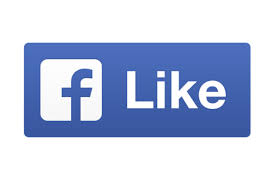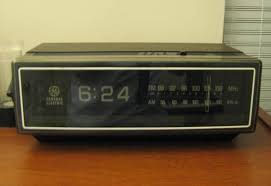Rehab Articles
The latest scientific analysis shows that interventions for alcohol use reduction were not effective at all when the interventions were aimed at fraternity members and possibly sorority members, and the analysis covered data and research for a period of 25 years. The data that was used also represented more than 6,000 university and college students. According to Lori Scott-Sheldon, Ph.D., the lead researcher for the research study, “Current intervention methods appear to have limited effectiveness in reducing alcohol consumption and alcohol-related problems among fraternity and possibly sorority members. Stronger interventions may need to be developed for student members of Greek letter organizations.” The study showed that there were no significant differences in alcohol amounts consumed, the frequency of drinking to excess, and even alcohol use related problems between the intervention group and others. In fact in a surprising twist many fraternity and possibly sorority members consumed even more alcohol after receiving an intervention.
Scott-Sheldon explained the results from the study on interventions for alcohol use among Greek college organizations. “We expected that providing Greek members with a thoughtfully designed and carefully administered alcohol intervention would reduce consumption and problems relative to no intervention. Reducing alcohol consumption and problems among fraternity and sorority members will require a different strategy relative to their college drinking peers. Additional research is needed to determine the best approach to reduce alcohol misuse among members of Greek letter organizations. Given the lack of research with sorority members, our findings may not be generalizable to all members of Greek organizations. More research is needed to determine the efficacy of alcohol interventions specifically for sorority members.”
Rehab Articles
With legal recreational marijuana laws being passed by a number of states in the USA many medical and scientific professionals see an opportunity to research how this drug and these laws impact alcohol use. University of Washington researchers did not find clear answers to this question when they performed a study to determine whether legal recreational marijuana increased or decreased alcohol use in certain groups. Researchers say that it is very difficult to gauge impact because the drug was previously illegal and illicit but it is now moving into mainstream use. In the United States alone 23 states have passed legal medical marijuana laws, and 4 states have passed laws to legalize the recreational use of marijuana. According to the lead author of the study, Katarína Guttmannová, “We chose to focus on alcohol because even relatively small changes in alcohol consumption could have profound implications for public health, safety, and related costs.”
The study on legal recreational marijuana and alcohol use did not provide the clear answers that researchers were seeking. Since marijuana and alcohol both work on the reward center of the brain, and one drug may complement the other when both are used together, the goal was to see whether people were using pot instead of alcohol or using both substances together. Guttmannová explained “This is a complicated issue and requires a nuanced approach. We were hoping to have more clear-cut answers at the end of our research. But you know what? This is the science of human behavior, and it’s messy, and that’s OK.”
Rehab Articles

A new research study at Michigan State University examines whether social media encourages alcohol use, and the results may surprise some people. The more a user on Facebook sees or shares comments and views on an alcohol related page or topic the more likely the user is to engage in alcohol use. More than 400 participants recorded their emotions and feelings after they saw and responded to Facebook items which were relevant to alcohol. According to study leader and assistant professor Saleem Alhabash, Ph.D., “What we found is if people actually feel so engaged with that message and want to do something about it —like, share or comment —that it makes the likelihood of them thinking about drinking even greater. Alcohol content is everywhere. Underage drinkers will see these ads, think they’re cool, and then like or share. They interact with it and start thinking about it.”
When discussing the MSU study on social media and alcohol use assistant professor of advertising and public relations Anna McAlister, Ph.D., said “Do intentions lead to actions? Intention is the single strongest predictor of actual behavior.” Alhabash continued with the statement “It’s ironic because the classical way of thinking about marketing, say on TV, is to advertise alongside alcohol brands. Our study says ‘this might not be the way to do it.’” The implications of the study results on underage drinking could be enormous. Alcohol related Facebook pages could be contributing to underage drinking by minors, and with the latest research results showing this to be a contributing factor steps may be possible to minimize exposure to alcohol related Facebook pages by minors.
Rehab Articles

alcohol use, sleep disruptions
Alcohol use before bed may seem like a good way to get to sleep, but new research shows that this can actually promote sleep disruptions in the night. A drink will have an initial sedative effect but it will not help you get a restful sleep, and researchers performed studies using EEGs and other diagnostic tests to identify why this happens. University of Melbourne in Australia researchers looked at EEG activity which showed the changes that occur during sleep after alcohol is consumed. One of the study authors, Christian L. Nicholas, Ph.D., said “People likely tend to focus on the commonly reported sedative properties of alcohol, which is reflected in shorter times to fall asleep, particularly in adults, rather than the sleep disruption that occurs later in the night. The reduction in delta frequency EEG activity we see across the ages is thought to represent normal brain maturational processes as the adolescent brain continues to develop to full maturity.
Dr. Nicholas continued by saying “Although the exact function of non-Rapid Eye Movement (NREM) sleep, and in particular SWS, is a topic of debate, it is thought to reflect sleep need and quality, thus any disruption to this may affect the underlying restorative properties of sleep and be detrimental to daytime functioning.” Since alcohol use causes sleep disruptions later in the night it should be avoided. The initial sedative effect benefit does not outweigh the drawbacks that occur. Nicholas noted that alcohol should not be used as a sleep aid, and said “Similar increases in alpha-delta activity, which are associated with poor or unrefreshing sleep and daytime function, have been observed in individuals with chronic pain conditions. Thus, if sleep is being disrupted regularly by pre-sleep alcohol consumption, particularly over long periods of time, this could have significant detrimental effects on daytime well being and neurocognitive function, such as learning and memory processes.”
Rehab Articles

alcohol use, alcohol abuse, sleep disturbances
Study results have shown that alcohol abuse can cause sleep disturbances even after all alcohol use is stopped. A number of studies have shown that the sleep patterns of current and past alcoholics are not the same as sleep patterns which occur in those who have never abused alcohol. One of the relevant studies was published in the Oct 1 2009 Sleep journal, and the study involved 84 people. It has long been seen that alcohol use can impact sleep, but 42 study participants were previous alcoholics in recovery and 42 study participants had never had any issues with alcohol abuse. Everyone who participated in the study had an overnight stay in the sleep lab and they were attached to monitors to study their brain and sleep patterns.
Alcohol use and alcohol abuse cause sleep disturbances, but what was a little surprising was the sleep patterns that were seen in individuals who were previously alcoholics but who had been in recovery for at least 30 days, and some of the study participants had been in recovery for much longer than this. Even after being clean and sober for at least 30 days, and in some cases many months, those who had alcohol abuse issues in the past still had sleep disturbances. Alcohol use causes reduced REM sleep and it may be possible that the sleep disturbances seen in previous alcoholics is the attempt by the body to recover from insufficient REM sleep.



